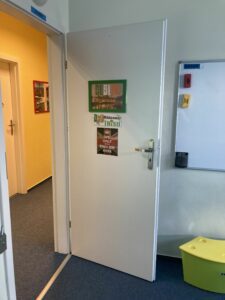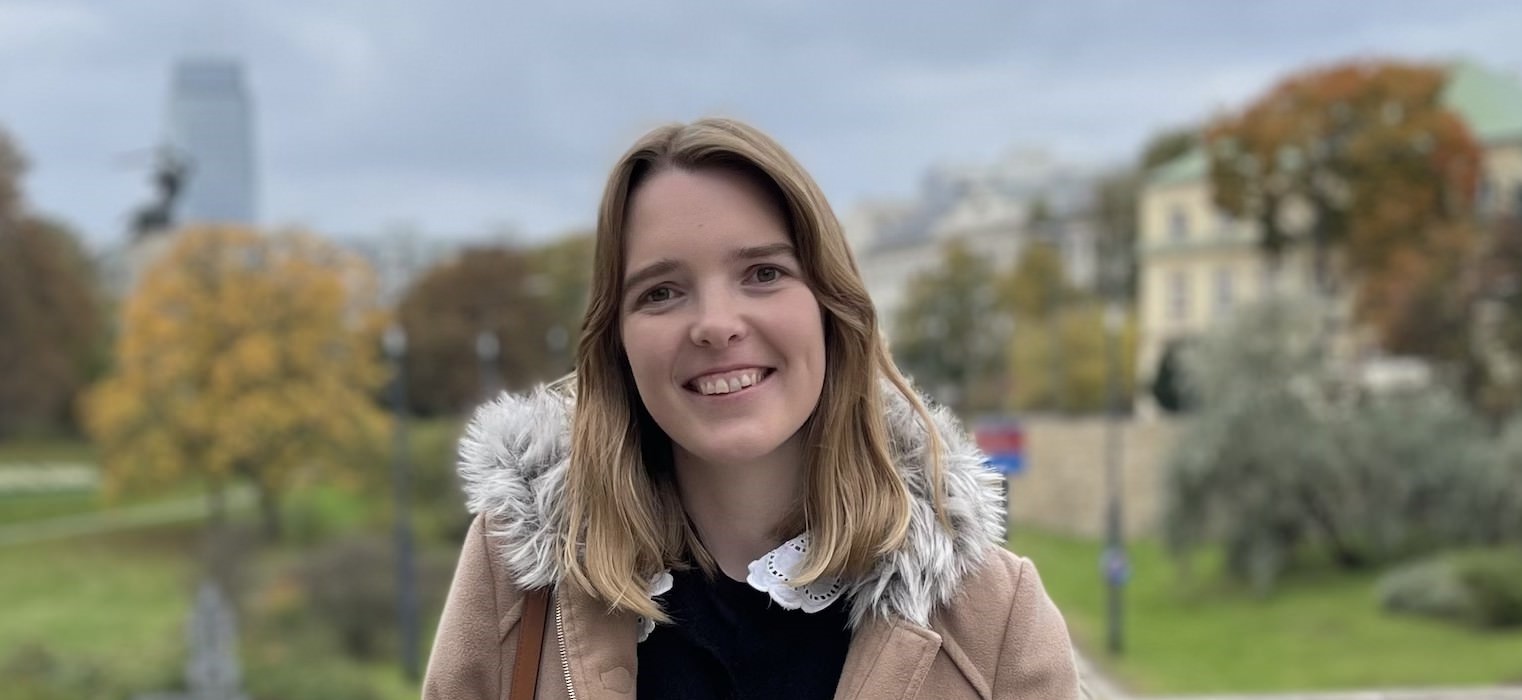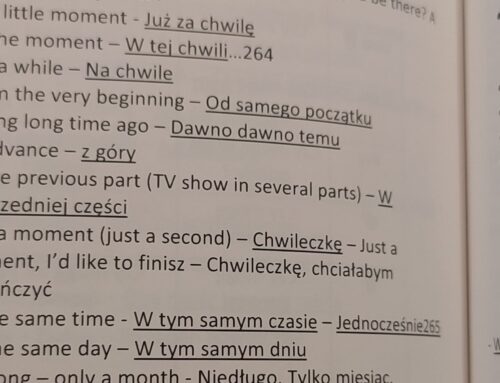By Rhianna Varney, Teacher in Warsaw, Poland
At the beginning of September, I moved to Poland to teach English and it was quite a big change in my life. I had never lived abroad before and, because of covid, had spent most of the past year staying inside and teaching online. I have now been here for just over a month and I am loving it. I feel like I’ve learned so much in the past month, not just about Poland, but about teaching English as a foreign language.
School hours, and teaching different age groups
I teach English at a private, afternoon school in Warsaw. My hours are 2:00 pm until 7:15 pm. On Mondays through to Thursdays I teach groups of six for an hour at a time. Then on Fridays I have one to one lessons. The students range from eight years old to fourteen years old. I’ve realised there is quite a big difference in teaching eight-year-olds to teaching fourteen-year-olds.
My eight-year-olds tend to not know very much English at all, and because they can be quite excitable, often talk to each other, and to me, in Polish. It can be quite hard to communicate with them. I have learned a few tips and tricks on what to do when they really want to tell you something. First, I ask them to draw what they want to say on the white board – sometimes, it is as simple as wanting to tell me they went swimming at the weekend. If that doesn’t work, I will sometimes let them use google translate, so they can better understand what they are trying to say in English. However, I try to use this sparingly, as the children like using google translate a little too much.

Behaviour management
I’ve also realised that behaviour management is much more necessary when teaching eight-year-olds, than when teaching fourteen-year-olds. The fourteen-year-olds are often very quiet, whereas the eight-year-olds are the opposite. If I turn my back for a moment, the chances are when I turn around again, one of the children will be doing something they shouldn’t – drawing on the walls, picking up something from the back of the classroom. A recourse which has proved invaluable in keeping the children in order is stickers. The children love them, and if they are being naughty, and don’t get a sticker, it encourages them to behaviour more. Sometimes, the children will try to barter, though. One child said they wouldn’t behave for one sticker, but three. It took some haggling to get him down to one sticker and a high five.
The fourteen-year-olds are much different. Usually, my main problem is getting them to speak. They can sometimes look at you quite blankly. I find they like conversation activities the most, but not necessarily where they have to speak to each other, but when they get to talk as a group. If I ask them all, ‘Where have you been on holiday?’ For instance, and I go around the class, getting them to answer one by one, they tend to be a bit more talkative.
Top tips
My top tips for preparing to teach English as a foreign language are:
- Have a lot of games up your sleeve. An hour can be quite a long time to fill, and sometimes I finish Having a lot of possible games we can play makes it much easier to keep the children occupied.
- Get to know your students. Some students love games, some prefer writing work. Getting to know your students and how they like to learn can help you adapt your lessons to best suit them.
There are also some great resources online for teaching English:
- ESL worksheets: https://en.islcollective.com/english-esl-worksheets/search
- Bamboozle: https://baamboozle.com/
- Quickdraw: https://quickdraw.withgoogle.com/
- British Council Learn English: https://learnenglish.britishcouncil.org/

Overall, I love teaching English at the school. I’ve learned so much about teaching and the Polish culture. I’ve also met a lot of people from around the world. At my school, there are people from South African, America, Turkey, Vietnam. It’s been so interesting getting to know people from lots of different countries. I also love watching the children learn. Even though I’ve only been teaching for just over a month, it’s great to see them use new vocabulary already. I’ve very excited to continue teaching.
The next step? Learn more about our Poland program or send in an application if you’re ready to take the leap.




